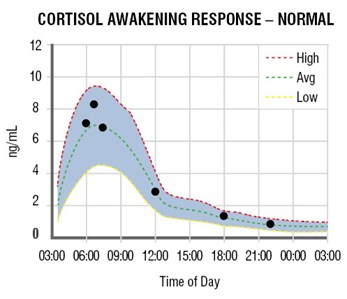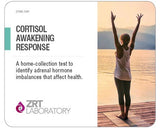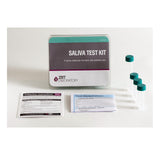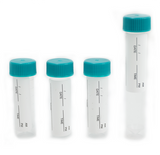The Cortisol Level Test, also known as the Cortisol Awakening Response (CAR), accurately evaluates the levels of DHEAS and Cortisol hormones at six different points throughout the day in men and women. The CAR provides valuable insights into adrenal hormone/HPA Axis dysfunction by revealing detailed clues.
This hormone testing particularly benefits individuals with PTSD, major depression, chronic fatigue syndrome, and other severe stress-related conditions. A normal cortisol awakening response involves a 50% increase in adrenal hormone levels within the first 30 minutes after waking, followed by a gradual decline throughout the afternoon and evening. Three-morning saliva collections are necessary to plot the diurnal cortisol curve to capture this response accurately.
A cortisol test measures the cortisol concentration in your saliva, making it the most common method for cortisol assessment. Abnormal cortisol levels, whether too high or too low, could indicate an adrenal gland disorder. It is essential to address these disorders promptly, as they can be severe if left untreated. If you are experiencing any of the following symptoms, this test kit is suitable for you.
Key Features
- Convenience: Collect samples from the comfort of your home and conveniently send them to our lab for analysis—no need for a clinic visit or invasive procedures.
- Fast Results: Receive your test results within 3-5 working days after the laboratory receives your sample. This allows for prompt assessment and action if necessary.
- Comprehensive Analysis: The test result includes hormone levels presented in graphics and numbers, providing a clear understanding of your hormonal status. Additionally, a Hormone Specialist PhD Dr. provides laboratory comments, offering expert analysis and guidance on the next steps.
- Suitable for All Ages: The test is designed for both adults and children, making it ideal for individuals of all age groups.
- Long Shelf Life: The test kit remains valid for up to 12 months after the purchase date, allowing flexibility in scheduling and usage.
- Inclusive Pricing: The test kit includes a laboratory fee, ensuring there are no additional costs or taxes related to the laboratory analysis.
- Shipping Responsibility: Customers are responsible for shipping their samples to the laboratory, giving them control over the shipping process and timelines.
- How and When to Collect your saliva samples: Saliva Testing Instructions
- Click to see >> Sample Saliva Test Result Report
Cortisol Awakening response sample collection:
6-Tube Collection: Six cortisol collections in 24 hours is the most common method for assessing CAR. Start saliva collection within five minutes of walking for the day, followed by a second sample at 30 minutes and a third sample at 60 minutes. The rest of the diurnal rhythm can be assessed at the normal time intervals – noon, evening and night (shown below).
4-Tube Collection: Alternately, CAR can be assessed with four cortisol collections in 24 hours. When using this method, collect a sample immediately upon waking, 30 minutes after waking, then at noon or evening, and at night.

Male low Cortisol deficiency symptoms:
Low cortisol levels in males can lead to various symptoms, including:
- Fatigue: Persistent and unexplained tiredness, even after adequate rest and sleep.
- Weakness: Generalized weakness and a lack of energy.
- Weight loss: Unintentional weight loss due to decreased appetite and metabolism.
- Low blood pressure: Hypotension, which may result in dizziness or lightheadedness.
- Low blood sugar: Hypoglycemia, causing symptoms like shakiness, sweating, and confusion.
- Depression and anxiety: Feelings of sadness, hopelessness, and increased anxiety.
- Irritability: Easily becoming irritable, moody, or having difficulty handling stress.
- Muscle and joint pain: Experiencing muscle weakness, aches, or joint pain.
- Digestive issues: Problems such as nausea, vomiting, and abdominal pain.
- Decreased libido: A loss of interest in sex and reduced sexual drive.
- Impaired cognitive function: Difficulty concentrating, memory problems, and brain fog.
- Slowed healing: Delayed wound healing and increased susceptibility to infections.
Male high Cortisol (excess of cortisol) symptoms:
- Anxiety: Excessive worry, restlessness, and a constant feeling of being on edge.
- High blood sugar: Elevated blood glucose levels, which can be associated with insulin resistance.
- Depression: Persistent feelings of sadness, hopelessness, and a loss of interest in previously enjoyed activities.
- Rapid aging: Premature aging signs, such as thinning skin, increased wrinkles, and weakened muscles.
- Sugar cravings: Strong urges or dependence on consuming sugary foods or beverages.
- Skin thinning: Thinning of the skin, making it more fragile and susceptible to bruising.
- Chronic stress: Persistent and overwhelming stress levels, often accompanied by emotional and physical symptoms.
- Waist weight gain: Accumulation of fat around the abdomen, resulting in an increased waist circumference.
- Sleep disturbances: Difficulty falling asleep, staying asleep, or experiencing non-restorative sleep.
Female low Cortisol deficiency symptoms:
- Fatigue: Persistent and unexplained tiredness, even after adequate rest and sleep.
- Weakness: Generalized weakness and a lack of energy.
- Weight loss: Unintentional weight loss due to decreased appetite and metabolism.
- Low blood pressure: Hypotension, which may result in dizziness or lightheadedness.
- Low blood sugar: Hypoglycemia, causing symptoms like shakiness, sweating, and confusion.
- Depression and anxiety: Feelings of sadness, hopelessness, and increased anxiety.
- Irritability: Easily becoming irritable, moody, or having difficulty handling stress.
- Muscle and joint pain: Experiencing muscle weakness, aches, or joint pain.
- Digestive issues: Problems such as nausea, vomiting, and abdominal pain.
- Decreased libido: A loss of interest in sex and reduced sexual drive.
- Impaired cognitive function: Difficulty concentrating, memory problems, and brain fog.
- Slowed healing: Delayed wound healing and increased susceptibility to infections.
Female High Cortisol (Excess Cortisol) Symptoms:
Excess cortisol levels in females, also known as hypercortisolism or Cushing's syndrome, can lead to various symptoms, including:
- Weight gain: Accumulation of fat, particularly around the abdomen, face, and upper back (buffalo hump).
- Elevated blood pressure: Hypertension, which may increase the risk of cardiovascular problems.
- Muscle weakness: Gradual loss of muscle mass and strength.
- Mood swings: Irritability, anxiety, and depression.
- Irregular menstrual cycles: Changes in the menstrual cycle, including irregular periods or amenorrhea (absence of menstruation).
- Acne and skin changes: Increased oil production, leading to acne breakouts and thin, fragile skin prone to easy bruising.
- Excessive hair growth: Hirsutism, characterized by excessive hair growth in areas such as the face, chest, and abdomen.
- Stretch marks: Pink or purple marks on the skin that may develop due to weakened connective tissue.
- Weakened immune system: Increased susceptibility to infections and delayed wound healing.
- Osteoporosis: Reduced bone density, which can increase the risk of fractures.
- Glucose intolerance: Higher blood sugar levels and an increased risk of developing diabetes.
- Sleep disturbances: Insomnia or disrupted sleep patterns.
If you experience one or multiple above symptoms, it might be worth using our Cortisol Awakening Response test to find out if your hormones are balanced.
The Benefit of The Cortisol Level Test, or Cortisol Awakening Response (CAR)
The Cortisol Level Test, or Cortisol Awakening Response (CAR) test, offers several benefits in assessing hormone levels and adrenal function:
- Comprehensive Evaluation: The CAR test evaluates both DHEAS and cortisol hormone levels at six different points throughout the day. This comprehensive assessment provides a detailed picture of hormone fluctuations and their diurnal patterns.
- Insight into Adrenal Hormone/HPA Axis Dysfunction: The CAR test is particularly useful in identifying abnormalities or dysfunction in the adrenal hormone system and the HPA (hypothalamic-pituitary-adrenal) axis. It helps healthcare professionals gain insights into the functioning of these critical systems.
- Valuable for Stress-Related Conditions: The CAR test is especially beneficial for individuals experiencing severe stress-related conditions such as PTSD, major depression, and chronic fatigue syndrome. By assessing cortisol levels, it helps in understanding the impact of stress on hormone balance.
- Revealing Detailed Clues: The CAR test provides detailed clues about the cortisol awakening response. A normal response involves a 50% increase in adrenal hormone levels within the first 30 minutes after waking, followed by a gradual decline throughout the day. Deviations from this pattern can indicate underlying issues or imbalances.
- Accurate Capture of Hormone Response: To accurately capture the cortisol awakening response, three-morning saliva collections are required. This allows for plotting the diurnal cortisol curve, providing a more precise representation of hormone fluctuations throughout the day.
By offering a comprehensive evaluation, insights into adrenal hormone dysfunction, and specific information about the cortisol awakening response, the CAR test aids in understanding the impact of stress on the body and can guide appropriate interventions and treatments.
How to use:










